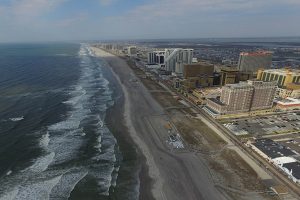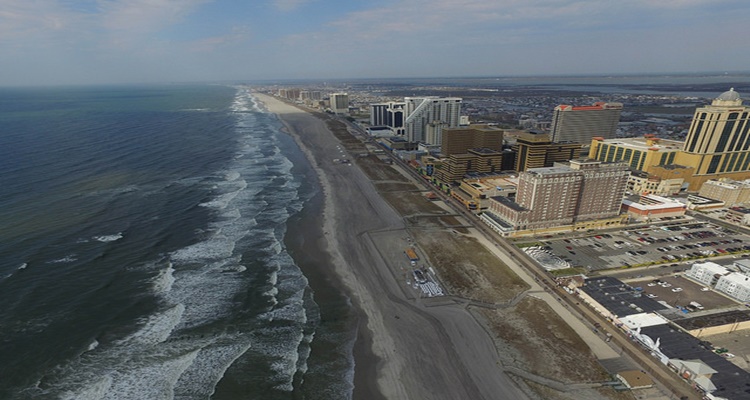The closure of the Trump Taj Mahal appears to have benefitted Atlantic City‘s seven remaining casinos, as a recent upswing in tourism has been seen within the last six months. Not only are the remaining casinos taking on the Taj’s former visitors, but new visitors are coming to the region to enjoy gaming and entertainment, as well as hotel stays.
According to Atlantic City Tourism Performance Indicators (pdf), a report prepared by Brian J. Tyrrell, Ph.D and Executive Director Rummy Pandit and published by Stockton University’s Lloyd D. Levenson Institute of Gaming, Hospitality & Tourism, for the past six months, Atlantic City’s economy has seen an upward trend.
Findings o 7BALL f the study were based on the taxes generated from resort parking fees, casino hotel stays and spending not associated with casinos. The three categories showed growth year-over-year when compared from October of last year until March of 2017. When looking at the first eight months of 2017, the casino revenues for Atlantic City sit 2% higher than the same time last year. From January through August, the boardwalk city’s seven casinos have won $1.8 billion.
In Atlantic City, parking costs $3 per parking space. The majority of that fee, $2.50, goes towards the Casino Reinvestment Development Fund. The $0.50 that remains is placed in the Casino Revenue Fund. By looking at the information associated with parking fees, the study was able to determine that the casinos saw an increase in revenues per parking space. A small portion of this increase is reportedly due to the Taj Mahal closing.
The tourism numbers for Atlantic City are also determined based on financial information derived from the lodging fee of Atlantic County plus the State Occupancy Fee. With the Taj closing, 2,010 guest rooms were lost. The resorts saw reduced competition which led to increased nightly rates. More income was then generated via lodging fees. According to the report, within the 12 months of operation ending in March 2017, an average of $669 was spent per month in tax fees based on 100 guest rooms. This is an increase of around 5.6% when compared to 2016.


